SITREP - The One Where I Discuss Intermezzo
Fungi allow plants to communicate via the wood wide web
I’ve recovered from my change-of-season cold (apparently, rhinovirus is running rampant through the hospital—annoying). I’ve also been very busy reading and preparing for our new season of TBR Lowdown, which starts tomorrow!
On top of all that, I’ve been prepping for Chaos Demon Writing Month, which is a writing challenge my friend Jess Owens and I are hosting for the month of October (because NaNoWriMo can suck it!). We’ll be hosting weekly writing sprints and cheering each other on. If you have a project you’re trying to finish, or you’re looking to start something new, you still have time to join us!
Ensure you’re subscribed to our channels so you don’t miss an announcement:
I’m a BookShop.org affiliate! Full disclosure: I will receive a small commission should you order books using my links.
Book Things:
Currently Reading:
I can’t remember who recommended this author's books (maybe it was
), but I’ve had this favorited on Hoopla for a while and decided to borrow the audiobook. I wasn’t an English major. Frankly, I struggled with essay writing and found English classes very discouraging in high school. I loved reading, but the academic parts went over my head. Now, here I am, talking about books on the internet all the dang time, and I thought maybe it would be nice to have a miniature crash course in literature.This would be an excellent book for a high school student struggling to find their groove in English Lit. At this point, I feel like I’m familiar with much of what the author is talking about, but I’m still enjoying how he’s trying to make the reader think about the books. It’s engaging, and I’ve found a few books to add to my neverending TBR. I think the author published a similar book about reading poetry, and I’m curious to see what that one is like. (70%)
The Woman Destroyed by Simone de Beauvoir:
The Woman Destroyed is our Patreon book club pick for September/October, and I’m slowly making my way through these short stories. I’ve only read one other book from Simone de Beauvoir, Inseperables, but these stories have a very different feel.
I finished the first story, The Age of Discretion, and I enjoyed it. It’s an interesting reflection on aging, marriage, and becoming empty nesters. As much as I enjoyed it, I found our narrator to be a tad unlikeable. After starting The Monologue, I wonder if I will like any of the female narrators in this collection because this woman is terrible. Yes, they have moments where I empathize with them or find them relatable (to a point), but they’re also pretty self-absorbed. I’ll pull together more of my thoughts this week and post them on the Discord discussion board.1 (36%)
Entangled Life: How Fungi Make Our Worlds, Change Our Minds & Shape Our Futures by Merlin Sheldrake:
I love fungi!!! They’re visually stunning, fascinating little creatures! Over the summer, we went to a screening of Fantastic Fungi, which included a discussion with one of the producers afterward. It’s a fantastic film celebrating all the incredible things Fungi can do and the ways we’re using them to help people with depression, PTSD, and even processing terminal illnesses. They’re simply amazing.
I’ve had the audiobook for Entangled Life on hold at my library for months, and it’s finally here! I’m a few chapters in and loving it. After an informative introduction, Sheldrake takes us on a truffle-hunting adventure. I’m always flabbergasted when I hear how much truffles cost. Even the dogs that hunt them are expensive. In fact, truffles are so valuable that truffle farmers wear camouflage when they’re out hunting to keep other truffle hunters from following them. These stinky little fungi are so precious that farmers are warned not to take guns out with them when they’re patrolling their territory to resist the temptation to kill poachers.2
I can’t wait to listen to more of this next week. If you have any fungi-related book recommendations, please drop them in the comments. The more I learn about mushrooms, the more I fall in love with them. (43%)
A Dance to the Music of Time: First Movement by Anthony Powell:
I am enjoying this read so much. This is like Brideshead Revisited but with the tone of Jeeves and Wooster. I love watching these boys grow up, make mistakes, fall in love (sometimes with several different women), and come of age against the geopolitical backdrop of the 1920s. My plan for this series is to read each movement and then watch an episode of the 1997 mini-series. (59%)
Lies and Sorcery by Elsa Morante:
Keep scrolling… (70%)
Recently Finished:
Sally Rooney, how I love thee…
“For an hour to share this without speaking. To sit here with other people in the dark. A small experience, small enough to hold in the hand, to touch and smooth later in a pocket.”
Intermezzo was in a word - STUPENDOUS! This might be her best book to date. We’ve moved beyond millennial malaise and messy relationships and into new phases of life and the loss of a parent. The death of a parent is something most of us will have to deal with one day. We still have classic Rooney messy relationships, but they’re more mature and slightly less unstable (comparatively speaking). Gone is the “right person, wrong time” plot line. Instead, we’re watching two brothers process their grief and how that affects their relationships with their partners and each other.
“Peter is the kind of person who goes along the surface of life very smoothly.”
“The will to live so much stronger than anyone imagines. Like a kind of death, what happened. A kind of death you survive out of politeness, respect for others, out of selfless love. Christ also survived his own death. And was dignified and exalted.”
Internally, Peter is a mess, bouncing between the woman he loves but can’t have sexually and the younger woman he is fond of but essentially uses for sex. He’s also drinking and taking pills to numb his pain. His chapters are often challenging to follow because Rooney uses stream-of-consciousness to emphasize how scattered and jumbled his thoughts are. He’s trying to process everything all at once and keeping up the appearance of everything being okay. Peter is a fixer. He wants to make things better. The death of his father leaves him as the head of the family, and the weight of that responsibility is too much for him to bear. But no one can control every aspect of their lives. And none of us can stop death. His depression is crushing him. He often contemplates suicide, and it’s heartbreaking watching him try to do it all on his own. Of all our characters, Peter needs the first therapy appointment - shoot, he might need a whole week of therapy.
“You know, I don’t think I would have become this really popular guy just from not playing chess. You can drive yourself crazy thinking about different things you could have done in the past. But sometimes I think, actually, I didn’t have that much power over my life anyway. I mean, I couldn’t give myself a new personality out of nothing. And things just kind of happened to me.”
Meanwhile, Ivan is actually the more stable of the two brothers (despite Peter’s insistence that Ivan is too young and immature for almost everything in life). Ivan is grieving, too, and it’s affecting his chess game. He used to be a top player, but he stagnates when his father gets sick. One day, he plays a local tournament (that might not be the correct term; I’m not a chess person) sponsored by a local chess club, and he meets an older woman named Margaret. They’re attracted to each other, but Margaret is concerned about the age gap. Despite her concerns, they enter into what might be the most stable and healthy relationship I’ve ever seen in a Rooney novel.
“Other people might experience these feelings all the time, whatever they are. Strong, powerful feelings of happiness, satisfaction, protectiveness. It could all be very ordinary, in the aftermath of mutually pleasant episodes like just now. Or even if it’s rare, to have a few times in life and no more, still worth living for, he thinks. To have met her like this: beautiful, perfect. A life worth living, yes.”
I know Intermezzo is getting a lot of buzz and hype at the moment, but in my opinion, it’s worth it. This is Rooney’s most mature novel to date. There’s so much more I could talk about, but I don’t want this newsletter to be too long. I may need to film a video review so I can ramble on ad nauseum about how much I loved this book. My only complaint is that now I have to wait some unknown amount of time for her next one.
Soldier Sailor by Claire Kilroy:
This is for anyone who wants an honest and raw look into the early days of motherhood. We follow Soldier (our mom) as she recounts her struggles and loss of self through the first few years of motherhood. We watch Sailor (the child) grow up and simultaneously see the person Soldier used to be disappear. She struggles to find joy and meaning in a life without adult conversation. Her husband is often working late or busy trying to provide for their family. We see the tension that can arise between parents as they struggle through the early years of raising a child.
“He generally cleans up after himself. I’ll give him that.
What a treasure. It’s so low Sailor. The bar for men is set so low.”3
But it’s not all doom and gloom. Soldier runs into an old friend at the park. He’s a stay-at-home dad and can relate to her struggles, but more importantly, he’s an adult. Reading this, I often recalled conversations with some of my stay-at-home mom friends when their children were younger. As much as they love their children, they miss the person they were before they took on the role of mother. I don’t have children, so I can’t relate to this struggle, but books like this help give insight into the experience.
“The starkness of the path ahead was revealed as the hormones flooded out of me, a phenomenon they call the baby blues though they are not blue. They are not any colour. They are the colour draining from your world.”
My arc copy has a quote from Sebastian Barry on the cover: “Every woman on earth will identify with this book.4 Every man will learn something urgent to his betterment. It sings with great authority about the wretched entrapment and molecular joy of motherhood.” And that’s the beautiful thing about books—they can give you a glimpse into different lives and experiences. Books teach us empathy.
"We're not a team. The lot of you in there discussing your wives' post-natal depression over the water cooler so you can feel like concerned husbands. All you need to do is help. But instead, you work late. You stay in the office until you're sure all the babies have gone to bed. Then you congratulate yourselves on how hard you're working. Your bosses promote you for shirking family responsibilities while your wives' careers dwindle to a halt because somebody is left holding the baby. And our child's going to grow up to think I'm a nag, same as I grew up thinking my mother was a nag, because it would be so much easier if the mothers shut up and did everything without perennially protesting about it."
Seriously, how many mothers can relate to this statement?
I do have one complaint about this book. We really didn’t need two full pages devoted to Soldier and her friend privately fat-shaming a child they see at the park. Soldier seems fixated on ensuring she’s feeding Sailor healthily, but this scene crosses into rather uncomfortable territory.
If you like stories about marriages that fall apart, the struggles of wifedom and motherhood, and being an artist, please read Liars. I previously read and enjoyed Very Cold People by Manguso, so I was thrilled when I heard she had a new novel coming out this year. This is my favorite of her books so far (granted, I’ve only read two, but it still counts).
“Not one married friend had a spouse who wasn’t impossible at times.”
Jane and John meet, fall in love, get married, and have a baby. But the happily ever part never arrives. John is emotionally abusive, self-centered, neglectful and, frankly, an ass. There are so many red flags while John and Jane are dating that I found myself screaming at Jane to run. But Jane is in love (insert big cartoon heart eyes). Jane is also depressed, lying to herself about her relationship and struggling to balance motherhood, wifedom, her writing career, and her individuality. John has the family crisscrossing the country every time he starts and fails at a new business venture. Eventually, the entire marriage implodes.
“So at his worst, my husband was an arrogant, insecure, workaholic, narcissistic bully with middlebrow taste, who maintained power over me by making major decisions without my input or consent. It could still be worse I thought.”
CAN IT JANE?!
It was so hard for me to watch Jane drown in this marriage. She spends so much time stressing about every detail of their lives: raising their child, maintaining the home, trying to find extra money to cover the bills, slapping on a smile to cover up all the pain she’s feeling; it’s exhausting to read. Meanwhile, John never seems to appreciate all she does or the sacrifices she repeatedly makes to follow him around while he chases another new business scheme. And to make matters even worse, whenever Jane has a win in her career, John finds away to undermine or upstage her.
“When I was young I’d sworn I’d never marry. I’d understood, back then, that commitment was a trap that closed off otherwise accessible exit routes. Then I had therapy for ten years and learned that commitment was a gift, the ability to give your heart to another. To forsake all others.
Then, more than a decade into marriage I had to relearn that it’s also the other thing, the trap. It’s both. I felt stupid having to relearn something that, thirty years ago, I’d already known. Together, the two truths were heavier than they were separately. I held tight to them both.”
Liars is relatable for anyone who’s ever been in an unhappy relationship and struggled to convince themselves that everything is okay. It is also a warning to choose wisely before marrying and having children. I haven’t stopped thinking about this book since I finished it several days ago. Once I started, I couldn’t put it down.
The Night Guest by Hildur Knútsdóttir (translated by Mary Robinette Kowal):5
I just pulled The Night Guest up on Storygraph and saw that some friends gave it 4.5/5 stars. Did we read the same book?
The Night Guest isn’t the worst horror novel I’ve read, but it’s not 5-star material (in my humble opinion). The pacing is rushed and needs more fleshing out. As it is, it feels like the author is trying to rely on vagueness to make this eery. Instead, I was left unsatisfied. This reads like a very late draft. I don’t know if that’s the fault of the translation or if it’s the story itself. I wanted more context regarding her dead sister and a smoother transition in the escalation of violence. It felt like we went from level 3 violent acts to level 10 in the blink of an eye.
I liked how Knútsdóttir ended the story. The final scene is perfect; it just needs a better setup.
The Day Death Stopped by Rebecca Thorne:
Last week, I said this would be a great palette cleanser after that glut of books about women and mental illness, and I was right! I mistakenly called this a mystery. It’s actually a witchy fantasy novel that turns the chosen one trope on its head. It’s an adventurous fantasy novel about power, friendship, and family, with a touch of revenge.
The witch world has a leader, the Zaro. There is one Zaro born in a generation (very Buffy the Vampire Slayer) that was until now. Two Zaros were born this time, but only one can rule the witches. Ozarik is the next Zaro and is taken as a young boy to live and train with the reigning Zaro. Meanwhile, Claire is left with her abusive father. He uses her magic to steal and grift his way through life. One day, Claire and Ozarik meet, which sparks a friendship that will end with one of them stopping death.
The plot alternates between past and present, showing us what led to the day death stopped. The author keeps you guessing with twists and turns throughout. I loved the magic system and the complex relationships between our characters. Rebecca never disappoints.
I gave this a solid try but ended up DNFing it. At this point in my life, I’ve tried and failed to enjoy Pillars of the Earth, Cathedral, and now this. I don’t like books about monks, especially monks from pre-Tudor England. I need to accept this.
I just couldn’t get into Nicked. I think it was meant to be humorous and possibly set up like a fable. Unfortunately, it was so fast-paced that I felt I was missing things. Maybe Anderson expected his readers to have a decent understanding of 11th-century (or is it 12th-century) geo-political history and a familiarity with the saints. I have none of this and felt lost. I’ve seen other creators who loved Nicked, which makes me think the issue is me, not the book. Either way, I will not be finishing it.
Just in from publishers:
(Thank you to all the publishers who send me books for spotlight and review. I will never get over how bonkers it is that this happens.)
We Do Not Part by Han Kang (Translated by E. Yaewon and Paige Aniyah Morris) (Out January 21, 2025, from Hogarth Press):
Han Kang is one of my favorite writers. Every time the publishers announce a new translation, I hop on NetGalley and beg for an arc. We Do Not Part is the story of the friendship between two women set during a painful chapter in Korea’s history and is described as Han’s “most revelatory book since The Vegetarian.” We Do Not Part is “a hymn to friendship, a eulogy to the imagination, and above all, a powerful indictment against forgetting…these beautiful pages form much more than a novel--they illuminate a traumatic memory, buried for decades, that still resonates today.” I cannot wait to be blown away yet again.
If you’re also a lover of Han Kang, I’d love to know which of her books is your favorite.
3, 2, 1, Round-up:
(AKA Random Non-Bookish Things Because I Totally Have Other Interests)
Three Things I’m Loving at the Moment:
Someone put every episode of Jeeves & Wooster on YouTube, and I’m in heaven. Do I have a DVD box set somewhere in my house? I sure do! But who wants to get up and find it when you can simply click play and binge the entire playlist while you’re sick in bed - no one, that’s who!
- and I recorded new episodes for Season 4 of TBR Lowdown this past week. I forgot how much I love sitting down with my bestie discussing books. Our Welcome Back episode will be live tomorrow, Monday, September 30th!6
As you may imagine, having a solid sleep routine is essential for me as a nightshifter. The MVP of my sleep routine will always be my melatonin and magnesium gummies, but I added two new things to the mix that have quickly become a close second. I’ve been on the hunt for a new silk sleep mask because the one I had hurt my ears. Thank you to
for recommending the perfect mask - my ears are so happy now! I also added a lavender linen spray that makes my bed feel like a spa! I’m sleeping like a baby!!
Two Videos to Watch:
This is just a reminder to consumers of digital content everywhere: when you “buy” an audiobook or ebook, you’re buying a license, not the book itself. I love audiobooks and ebooks, but the physical book will always be superior (in my opinion) because once you buy it, it’s yours and you can do whatever you want with it!
I can’t embed this video because it’s a fundraiser, but the British Museum hosted a discussion between Mary Beard and Elif Shafak, and it is terrific! They talk about Shafak’s wonderful new novel, There Are Rivers in the Sky, which I reviewed in the last newsletter. Beard and Shafak explore the themes of the novel, history, and the environment. This is honestly a must-watch.
One Adorable Picture of Alfie

SITREP is a free weekly newsletter about books and things. If you want to support my work, consider becoming a free or paid subscriber. You can also simply like and share this post with your friends.
Thank you for reading. See you next week!
One of my goals for 2025 is to figure out a way to make the book club more engaging. If you’re subscribed to the TeaTime broadcast channel on Instagram, you’ll know how they drop discussion points for their members. I want something more like this, which may require a platform change. Is this something I can host on Substack somehow? Do I start a broadcast channel on Instagram? I don’t know the best way to do this, so if anyone has suggestions, please let me know. I love having a little book club just for Patrons and paid subscribers, but the community is so tiny, and I have a hard time promoting things that require monetary input because times are freaking hard right now! Anyway, I welcome any ideas y’all might have.
Honestly, this would make a great murder mystery plot. Was the victim killed because they were poaching truffles or is there more to this story?
Ok, this quote made me chuckle.
I'm not sure about this statement, as it assumes that all women will also be mothers, but we will ignore that for now.
Warning: There is a lot of animal death in this; don’t read if you’re a cat lover.
TBR Lowdown Podcast is available on all podcast platforms. If you prefer video podcasts, you can always watch them on our YouTube channel.



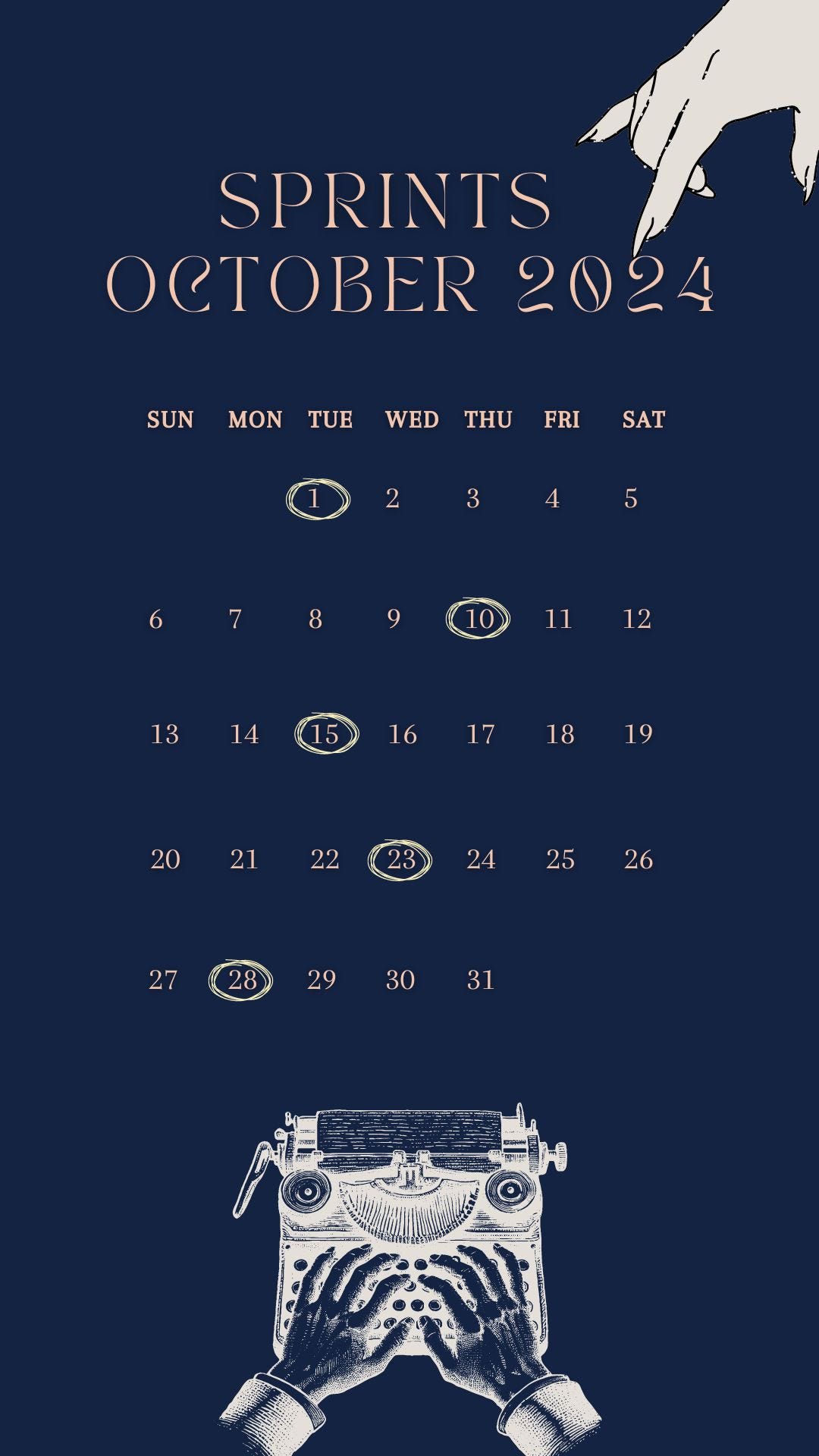
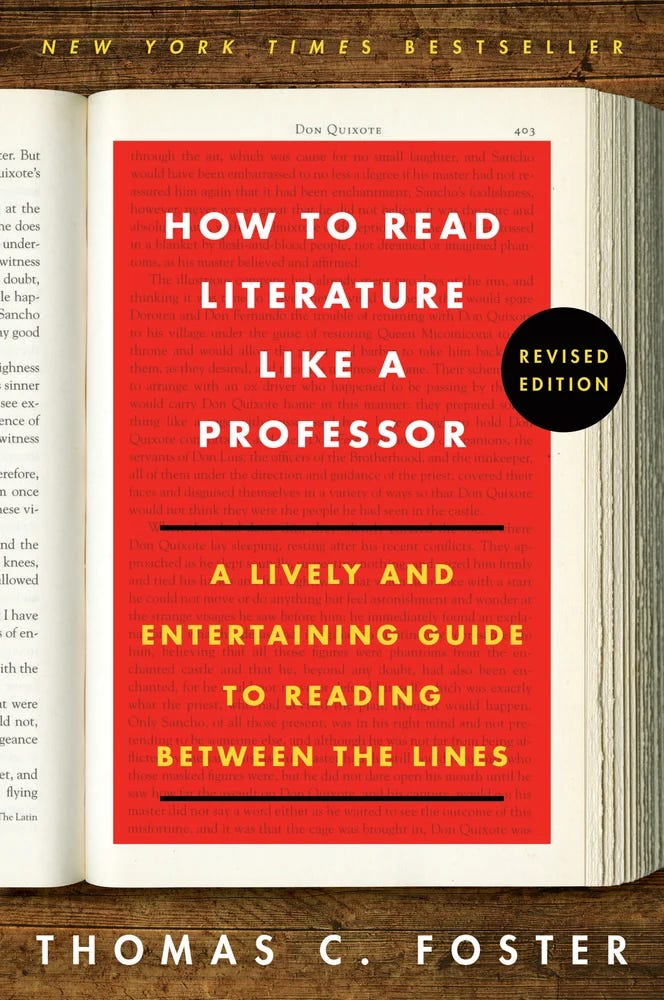

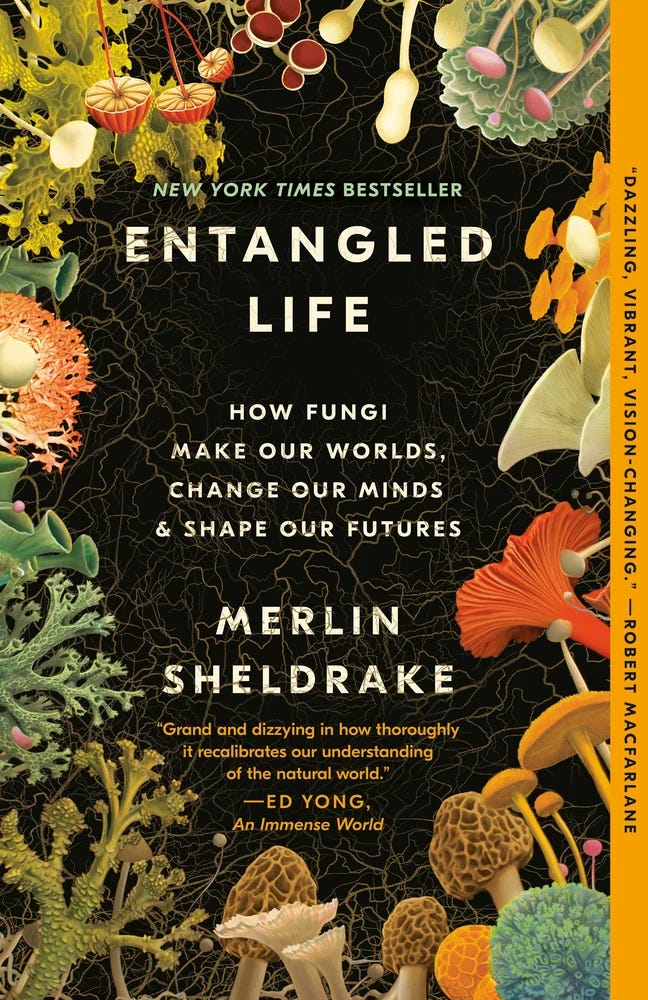
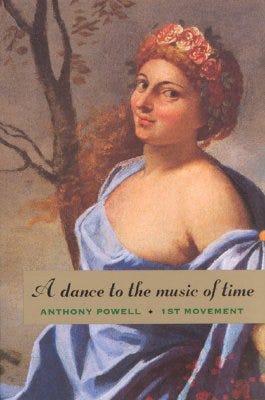

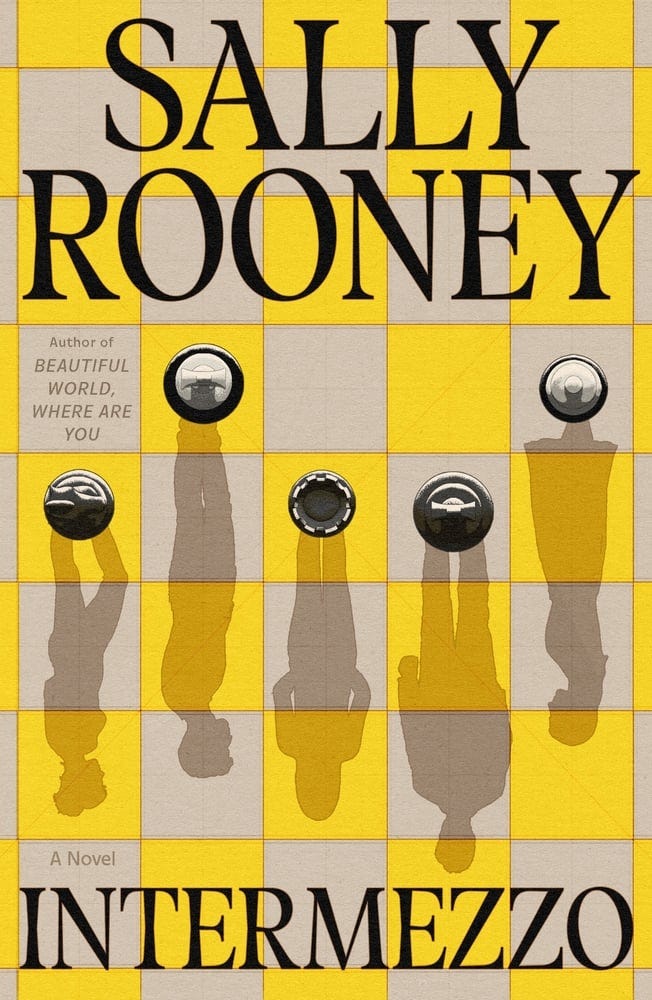
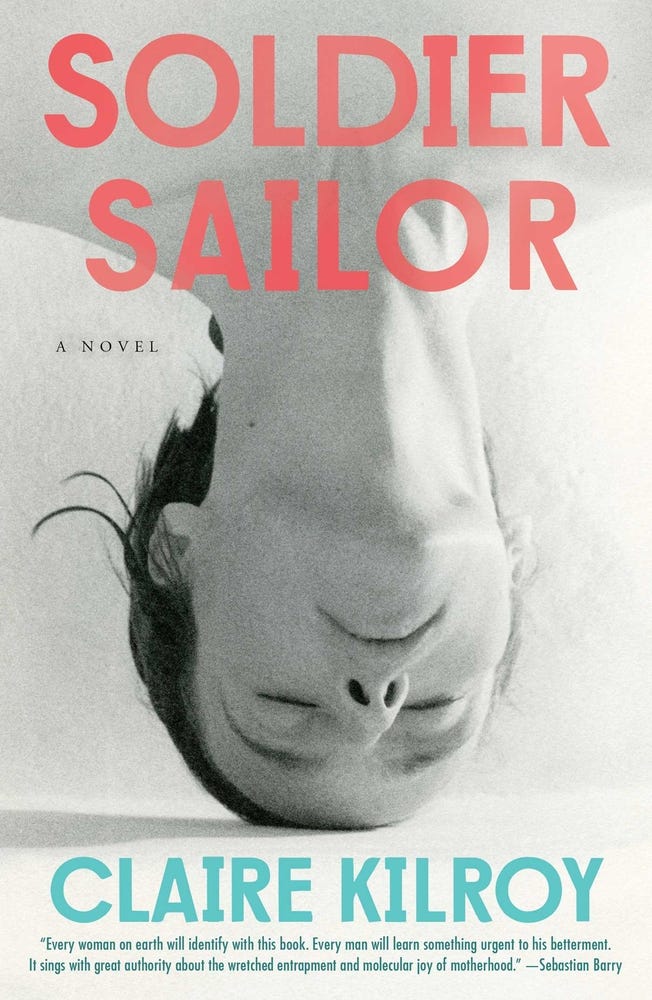

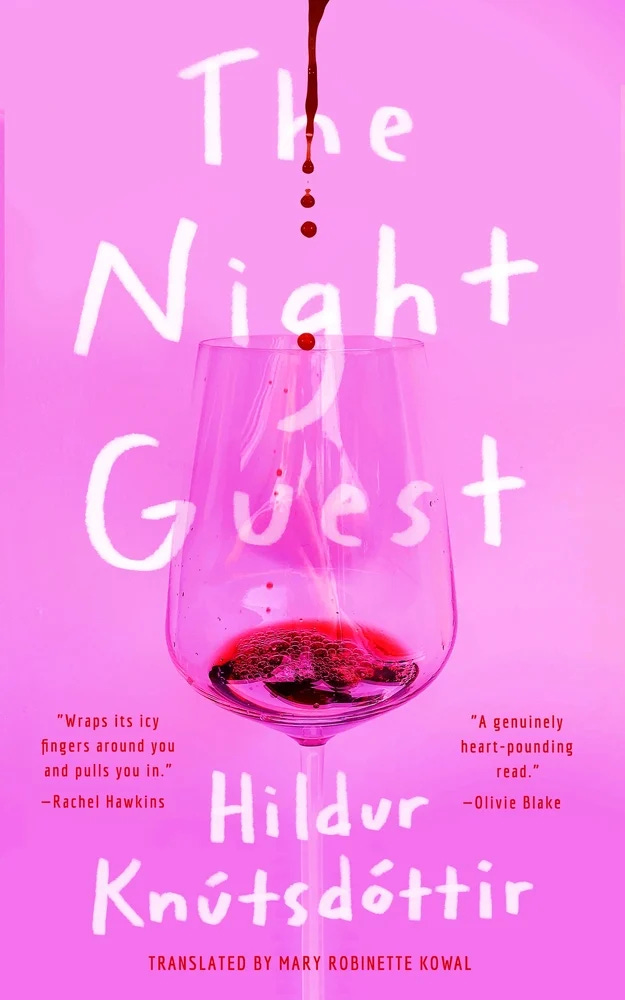
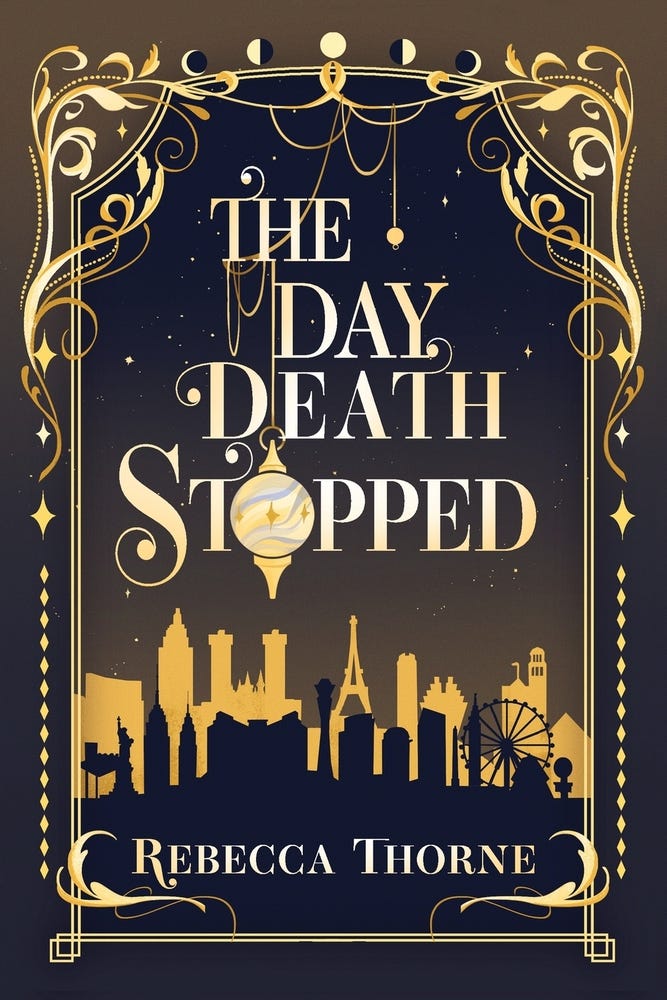
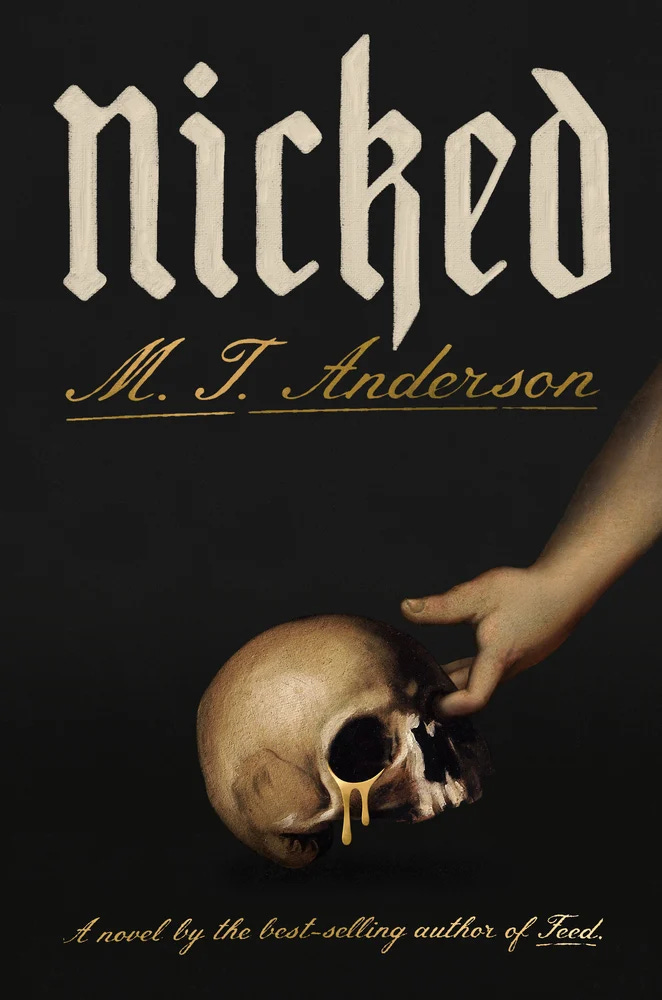
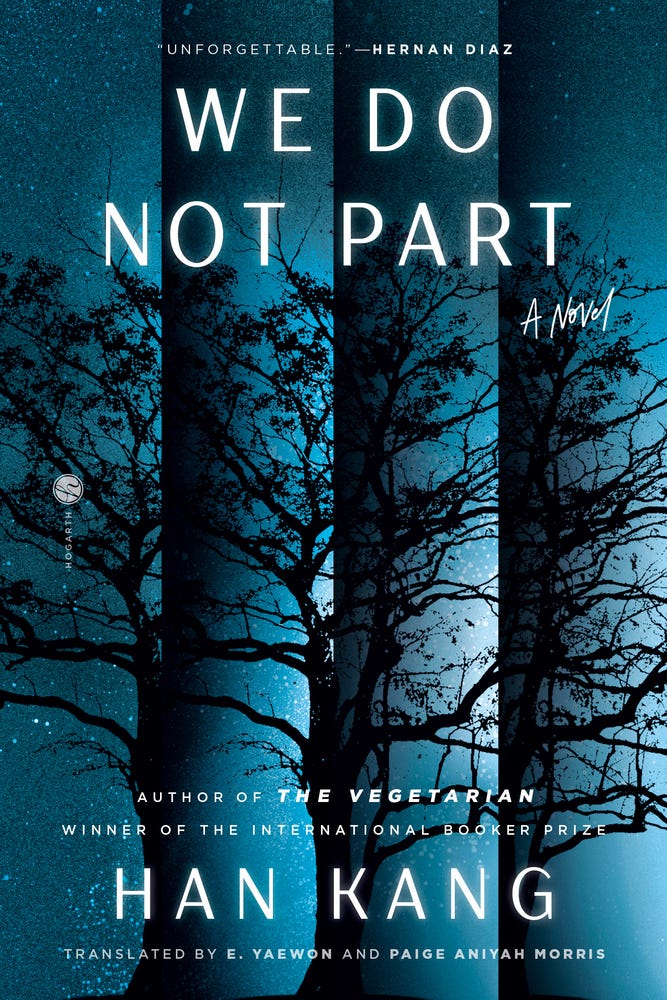

Yes it was me, and you’ve probably heard me talk about him because of the poetry book!
Given the references in previous newsletters to the classic 1941 film, “That Hamilton Woman”, the story of the tragic romance between Admiral Lord Horatio Nelson and Lady Emma Hamilton starring Vivien Leigh and Laurence Olivier, the following anniversary seems worth noting.
BIRTH ANNOUNCEMENT! Born today, September 29, 1758, at the Rectory of Burnham Thorpe in the County of Norfolk, a son, Horatio Nelson, safely delivered to the Reverend Edmund Nelson and his wife, Mrs. Catherine Suckling. A little brother for Maurice, Susanna, and William. Mother and son are doing well.
That's to say, today is Lord Nelson's 276th birthday! Huzzah!